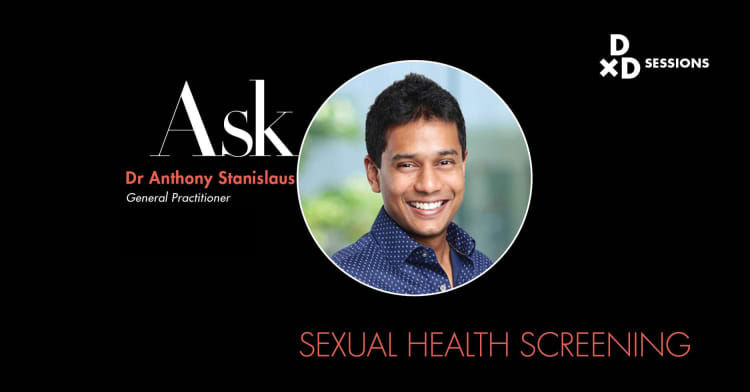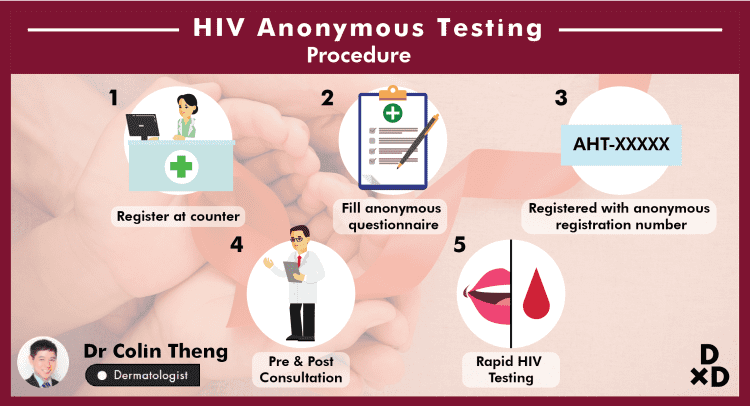In my years of treating HIV, one of the most important causes of HIV-related deaths is a late HIV diagnosis. Many people are adverse to taking the test because they fear the stigmatisation attached to it.
However, it’s important to understand that HIV screening should be part of everyone’s regular sexual health maintenance. Early detection can lead to early treatment and better outcomes. Many people live long, normal lives with early detection and proper care.
In this post, I will explain everything you need to know about getting a HIV test done in Singapore.
What is HIV?

HIV stands for Human Immunodeficiency Virus.
It is a viral infection that can be transmitted through bodily fluids; most commonly through sexual exposures but also through contaminated needles and blood transfusions.
If left undiagnosed and untreated, the virus will attack your body’s immune cells. These cells are the 'soldiers' that usually defend our body from infections. Without a healthy immune system, even minor infections can become severe and life-threatening.
What is an HIV test?
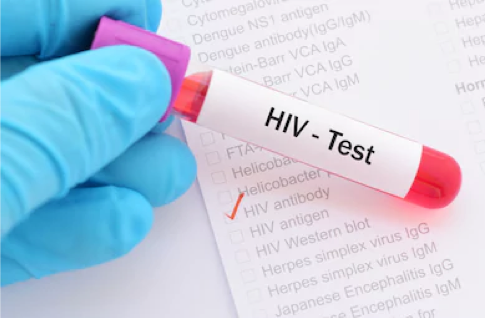
HIV test refers to any form of testing for an HIV infection. There are many types of HIV tests available in Singapore. I understand that it can be confusing, even for certain healthcare professionals who are not familiar HIV tests.
One of the main factors I take into consideration when I reccomend tests for my patients is based on the number of days since their last potential exposure, which I’ll explain in a little more detail below.
Why is it important to get HIV tested in Singapore?
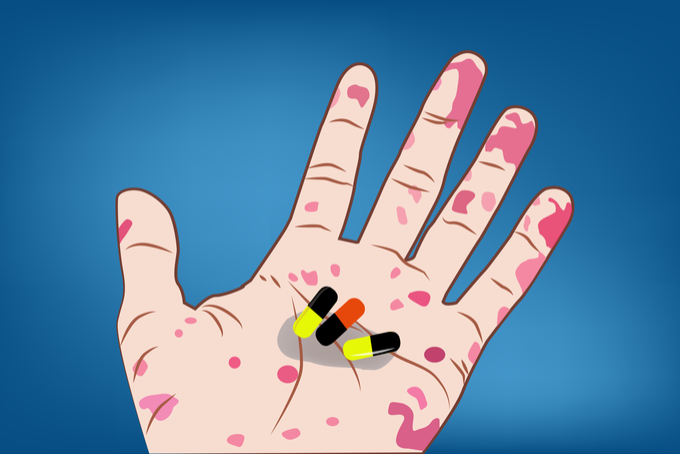
Early detection is essential to successful treatment of HIV. When HIV is diagnosed early, you're able to use medication to supress the virus. That allows for near normal life expectancy.
Studies show that the biggest factor influencing treatment outcome was due to early or late diagnosis. Having treated both groups of patients, I have witnessed the differences between them.
My patients who were diagnosed early were able to start their treatment early. Some of them are actually the healthiest, fittest, and happiest people I know!
On the other hand, a late stage HIV/AIDS is a dark and difficult path that I would not wish on anybody.
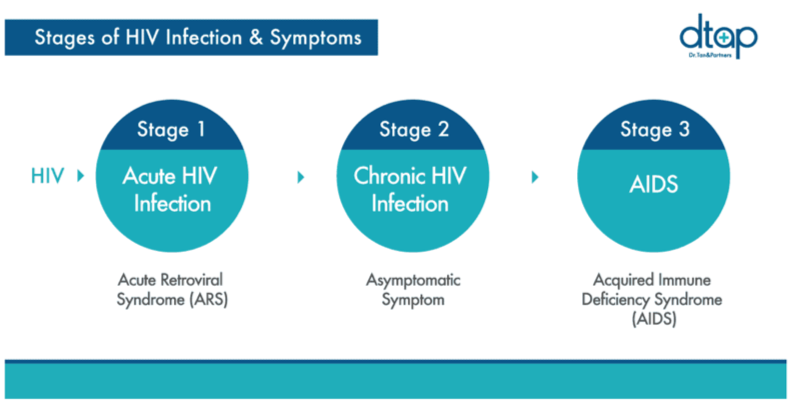
Here's where it gets complicated: Someone with an HIV infection may not have any obvious symptoms or signs for many years.
Early infection may cause non-specific symptoms such as fever, swollen glands, fatigue, and body rashes, but they are often dismissed as a bad flu.
It is usually followed by a ‘clinically latent period’ where there are no symptoms at all. This can last for upwards of 10 years. During this period, people may still be unwittingly spreading the infection to unsuspecting partners.
How much does a HIV test cost in Singapore?

The cost of HIV testing in Singapore starts from $10 and goes up to about $150. The price difference depends on where it’s performed and what kind of testing is needed.
For rapid testing at a private clinic, it can range between $50-150, if performed at Anonymous HIV Testing centers. Currently, there are only 10 such clinics available in Singapore.
Action For Aids organisation (a private charity organisation) is also able to perform rapid anonymous HIV testing. They are located at the DSC (Department of Sexually Transmitted Infections Control) clinic. Test charges costs $10- $20. They are open for HIV testing only 3 days of the week, for a few hours.
Testing can also be performed at polyclinics or when included in general health screen and work permit packages. These are usually lab-based so they require a longer turnaround time. They are also not annonymous. A positive test result is notifiable to the Ministry of Health.
Remember to also factor in consultation fees, which will vary from clinic to clinic. It's best for you to find a doctor that you are comfortable to speak to openly.
Are there any subsidies or Medisave claims available for HIV tests in Singapore?
There are no subsidies specifically for HIV testing in Singapore. Medisave claims may only be available for general health screening packages (which may include HIV tests), but not for rapid testing or anonymous testing.
I don’t think I am at a high risk for HIV. Why should I get tested?

Many people have the misconception that HIV “only affects gay men” or “guys who sleep with prostitutes”. That is untrue. While these are definitely high-risk groups, the reality is that HIV infection does not discriminate.
I've had to tell ‘regular’ men and women who have been in presumably low-risk situations the unfortunate news that they have contracted HIV.
The nature of this kind of infection, (as with other sexually transmitted diseases), means there is always a chain of infection.
Let me break it down for you: You might have only been with one sexual partner. However, if he/she has had 3 previous partners, and those partners have had 3 previous partners each, you are potentially exposing yourself to any infection that these 13 people may have contracted.
In this scenerio, we're assuming nobody has gotten tested before.
What are the chances of getting infected when exposed to the HIV virus?
The good news is, having an exposure with an HIV-positive person does not automatically mean that you'll get infected. The probability of infection varies depending on several factors, including:
- Type of exposure
- Viral load
- Stage of infection
- Other concurrent STD (e.g. herpes or chlamydia, etc.)
Apart from sexual exposures, I’ve seen people infected by dirty needles from tattoo parlors overseas, and from occupational exposures in healthcare workers.
But, why roll the dice? If there has been any kind of potential exposure (sexual, occupational or otherwise), you should always get tested. You have to realise that HIV testing not only benefits you, but also your loved ones and/or future partners.
Related: The Ultimate Guide to STD Tests in Singapore (2021)
Where can I go for a HIV test in Singapore?

HIV testing can be performed with pretty much any healthcare provider (clinic, hospital) in Singapore. However, only certain clinics may offer rapid testing, and even fewer are able to offer the tests anonymously.
You may find a list of anonymous HIV testing sites here: https://www.healthhub.sg/live-healthy/372/anonymous_HIV_testing
What kinds of HIV tests are available in Singapore?

A graph of the types of HIV tests
As I’ve mentioned, there are several types of HIV tests available in Singapore. The most common ones are:
- 4th Generation Antigen/Antibody testing
- HIV RNA/DNA PCR viral load
- Western Blot
Currently, most countries and guidelines recommend the 4th Generation Antigen/Antibody testing as it is the most accurate.
What are HIV anti-bodies?
HIV antibodies are proteins formed by your own body in response to the virus. They usually start forming as early as 14-17 days post-exposure. 99.9% of patients having a detectable antibody response by 3 months. These time periods for testing are known as window periods.
Why is the 4th Generation HIV test most accurate?
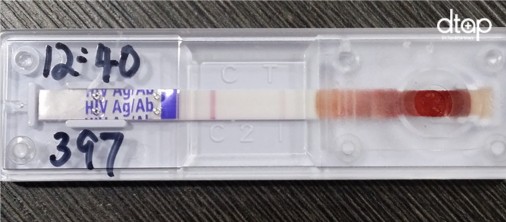
HIV is a type of retrovirus, and much of its core structure is made up of a protein known as p24 antigen. That's what the 4th generation test is looking for.
This antigen usually becomes detectable from 10-14 days post-exposure, usually reaching a peak at around 3-4 weeks, and dropping to lower levels after 5-6 weeks once HIV antibodies start forming.
For extremely rare cases where people do not mount an appropriate HIV-antibody response, the 4th generation test is still able to detect p24 antigen. This is why it is considered the most accurate first line test for HIV diagnosis.
How does the HIV RNA/DNA PCR test work?
This test has revolutionized HIV screening, especially for people at high risk. It directly measures the amount of virus in a person’s blood. It can detect conclusively from as early as 10-12 days post-exposure.
It is also used to monitor viral load in people with a known HIV infection. Although this test is able to pick up HIV infection at the earliest stage, it is not widely available due largely to costs and turnaround time in Singapore. This is something we are trying hard to address in the near future.
What is the Western Blot?
The Western Blot is a HIV antibody test that is usually used as a confirmation testing, only after a preliminary test has shown a positive result.
As HIV is a serious and life-changing diagnosis, it’s important we get it right. We always require two separate tests showing a positive result before we confirm it to the patient.
How soon after an exposure should I get a HIV test?

Different types of testing have different window periods.
Window periods refer to a period of time where it may be possible to detect the virus, but negative results may not yet be fully conclusive.
For instance, the 4th generation HIV Combo test has an accepted window period of 28 days. That means that if this test is performed after 28 days, it will conclusively detect the virus if there is a true infection.
Even though I have personally tested patients who were positive with 4th gen testing at 14 days post-exposure, I'll still always recommend someone who was tested negative at 14 days to repeat the testing after 28 days to be fully certain.
What is an eclipse period?
Besides a window period, there is also something called the eclipse period. This refers to the immediate couple of days following a HIV transmission. It's impossible to detect the virus with any test during the eclipse period.
If you think that you have been exposed to the virus and it has been less than 72 hours, we'd recommend a course of medication called HIV Post Exposure Prophylaxis (PEP).
They are antiviral tablets that can help to prevent the virus from replicating and clear the infection from the body. This medication has shown to reduce the risk of HIV infection by up to 95%.
Once it is past 72 hours, this medication is no longer effective. You will just have to wait for the appropriate amount of time before testing.
Also read: You Can Prevent STIs And HIV; This Singaporean Doctor Explains How
My doctor told me that I am tested positive for HIV. Does it mean I have AIDS?

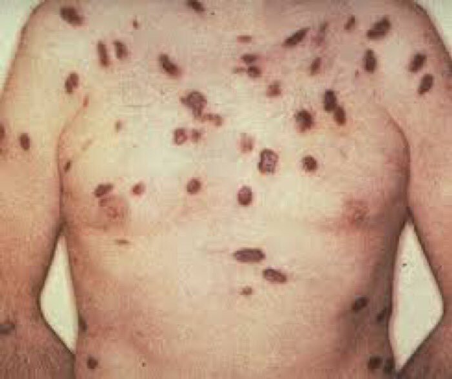
This is probably the scariest thing you may have heard about HIV. However, there is a critical distinction between HIV infection and Acquired Immunodeficiency Syndrome (AIDS).
People who are infected with HIV and are not on treatment allows the virus to replicate in the body and attack certain immune cells (CD4 T cells).
Over several years, the count of the immune cells will drop, eventually allowing certain infections caused by bacteria, viruses, fungi, or parasites to invade the body. Only when this occurs, then we say someone has AIDS.
These conditions are known as AIDS-defining illnesses.
- esophageal thrush
- tuberculosis
- certain viral-induced cancers, e.g. Kaposi sarcoma
While people with AIDS have a poorer prognosis, it is important to know that this is no longer an inevitability.
The progression of HIV infection to AIDS is now entirely preventable with proper treatment, with early diagnosis key to successful outcomes.
Will people know that I went for a HIV test? Are my results confidential?

The Infectious Diseases Act (IDA) in Singapore lists HIV as a notifiable disease. This means that anyone who has been tested positive is bound by law to notify the Ministry of Health.
However, the Ministry has mandated 10 sites in Singapore to perform HIV testing anonymously. This means no names, no identification numbers, no contact details necessary at all.
Even if a rapid point-of-care test is positive and needs to be sent for Western Blot confirmation testing, the result is still kept anonymous and does not need to be notified to anyone.
What happens during a HIV test in Singapore?
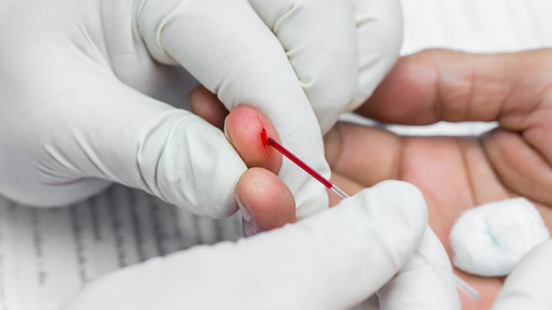
The first thing a good doctor should do is to put you at ease. You need to be able to feel comfortable navigating through sensitive issues so that an accurate risk assessment can be performed.
With this discussion, your doctor will then be able to determine which test is most appropriate for your exposure.
Rapid point-of-care tests are usually done with a small fingerprick sample, much like diabetics use to check their blood sugar. These rapid tests will take about 15-20 minutes to run, after which the doctor will inform you of the result.
If you were to opt for a lab-based test, it is simply a matter of taking a blood sample from the vein, having it sent off to the lab, and awaiting a call from the clinic a few days later for your results.
If the results are clear (negative for HIV infection), you have nothing to worry about; if the results are positive for HIV infection, the doctor would recommend a confirmation Western Blot test which is sent to the lab.
How are HIV results reported in Singapore?
Only positive HIV test results performed at a clinics that does not offer anonymous testing need to be reported to the Ministry of Health.
Tests which are negative, or non-reactive, do not have to be reported in any way. Anonymous testing sites are required to collect some demographic data to submit to the Ministry of Health, but these are non-identifiable (e.g. gender, age range, marital status).
Because I still get asked this all the time, I will repeat it again: A positive HIV test result from an anonymous clinic does not have to be reported.
Related: Do I still need to go for HIV screening if my STD screening test is non-reactive?
Can you test negative for HIV and still have it?

HIV testing has come a long way in the past twenty years, with newer generations of tests allowing for earlier and more accurate results.
However, as we have discussed, we still need to keep in mind the eclipse period and window periods for these different tests.
So if someone is still within the window period, there is always still a small chance that they may test negative if it is too early for the virus to be detected.
Always speak to your doctor about exposure risk and which test is most appropriate. Once you are out of the window period, testing is deemed conclusive by definition.
Related: Can HIV tests be considered conclusive if they show negative results?
Are the results from HIV self-test kits accurate?
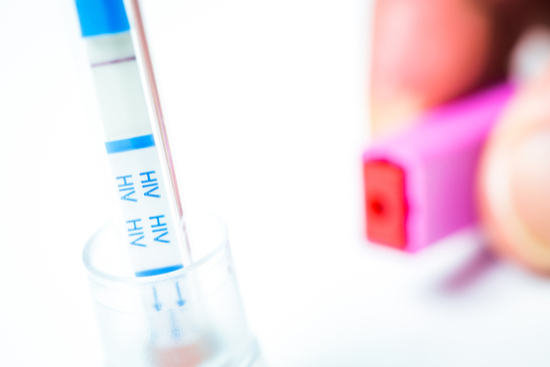
This is a bit of a tricky question. In recent years, several countries have started to recommend rapid test kits for home testing. Many of these test kits are presumably accurate, but I firmly believe there needs to be some form of regulating body to ensure this is the case.
In Singapore, this governing body is the Health Sciences Authority (HSA). As of now there are no test kits officially approved for self-testing.
These international websites offering delivery of home testing kits are not under any form of manufacturing checks or regulations. Thus, the consistency of the product and its accuracy is not ensured.
Product recall by HSA
In fact, some of you may have even heard of a product recall by HSA last year for a few batches of SD Bioline 4th generation test kits in Singapore, which was widely used in many clinics for HIV testing.
If even a large reputable company like SD Bioline was subjected to a product recall due to manufacturing defects, it would be difficult for me to place full confidence in home testing kits with no regulatory process in place.
Conclusion
In the next few years, we hope that we can work together with the HSA to come up with some guidelines for home testing kits. We want to help increase accessibility so that people are able to get timely and accurate HIV testing.
In the meantime, it is best to visit an accredited clinic or healthcare facility for proper testing.
Dr Jonathan Ti completed his postgraduate qualifications for Membership to the Royal College of Physicians (UK) in 2015 and obtained his certificate in Men’s Health and Andrology in 2017. He underwent training for several years with the Internal Medicine Residency Program in tertiary and community hospitals across the country. He has special interests in endocrine and metabolic/weight loss disease management, as well as men’s health and sexual health.






